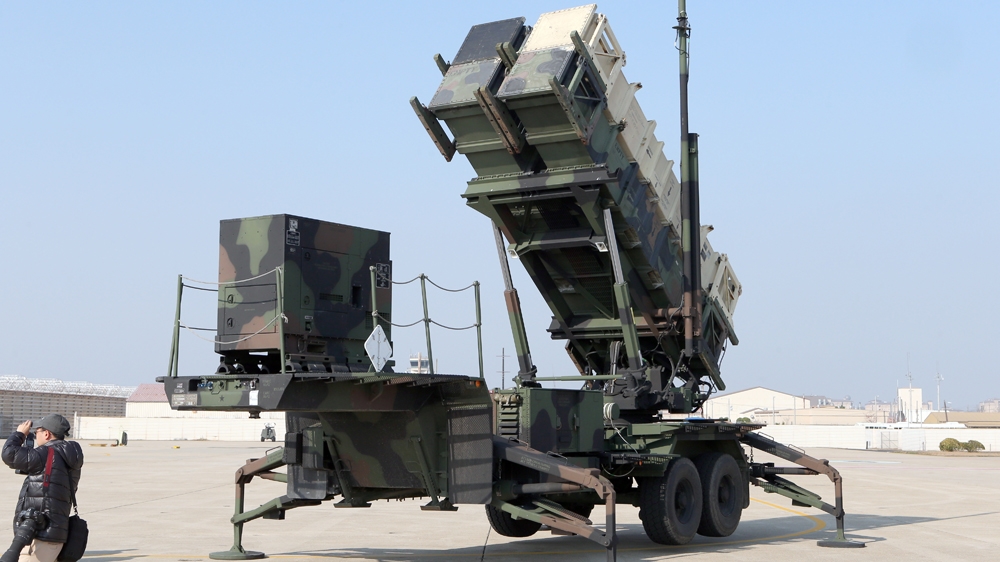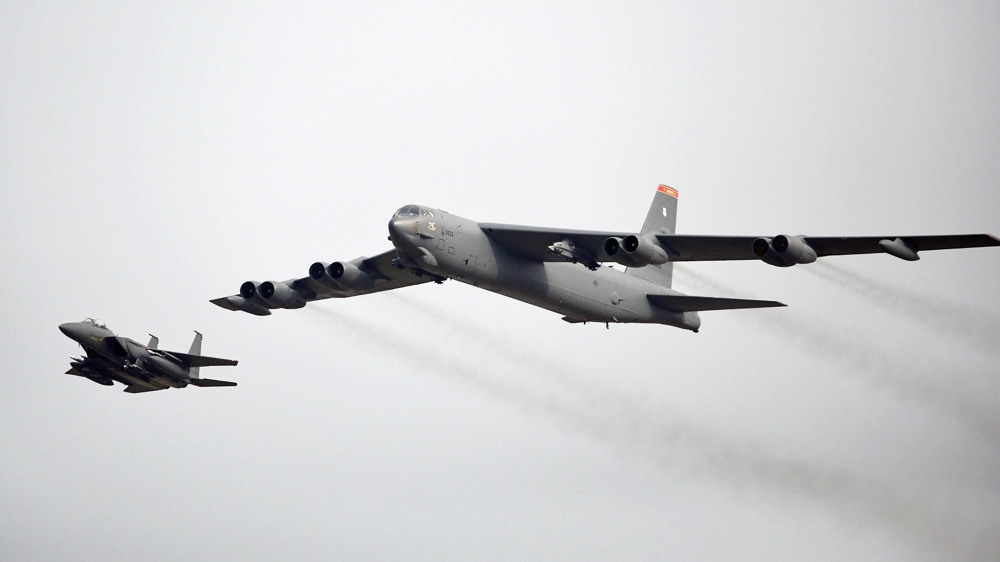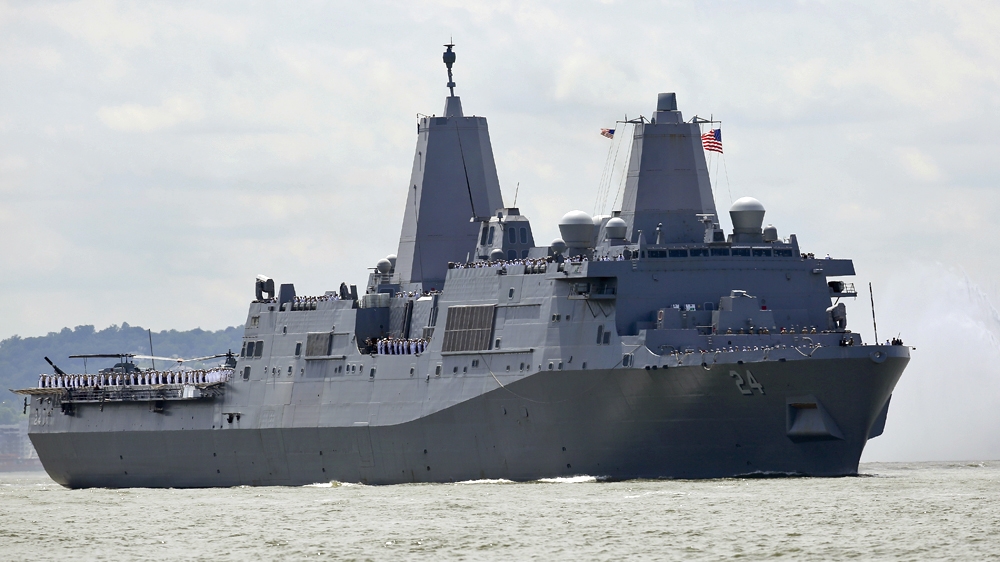US sends Patriot missiles, warship to Middle East to deter Iran

The US government has approved the deployment of a Patriot missile defence battery and another warship to the Middle East amid increasing tensions between the US and Iran.
The USS Arlington, which transports marines, amphibious vehicles, and rotary aircraft, as well as the Patriot missiles, will join the USS Abraham Lincoln carrier strike group, which already passed through Egypt's Suez Canal on Thursday, and is currently sailing in the Red Sea, according to CNN.
The US says the deployments of military hardware to the region comes in response to "heightened Iranian readiness to conduct offensive operations".
The Patriot missile system is a defence mechanism against aircraft, drones, cruise missiles and ballistic missiles, and is currently deployed in Bahrain, Jordan, Kuwait, Qatar and the United Arab Emirates (UAE).
"The Acting Secretary of Defense has approved the movement of USS Arlington (LPD-24) and a Patriot battery to US Central Command (CENTCOM) as part of the command's original request for forces from earlier this week," a Pentagon statement said.
Earlier in the week, a US air force bomber task force, including B-52 bombers, also arrived at the US airbase Al Udeid in Qatar, US Central Command said.
"The Department of Defense continues to closely monitor the activities of the Iranian regime, their military and proxies. Due to operational security, we will not discuss timelines or location of forces. The United States does not seek conflict with Iran, but we are postured and ready to defend US forces and interests in the region," the statement added.

Iran has dismissed the moves as "psychological warfare" designed to intimidate it.
In an advisory posted on Thursday, the US Maritime Administration (MARAD) said that since early May there had been an increased possibility of Iran or its regional proxies taking action against US and partner interests.
These included, MARAD said, oil production infrastructure, after Tehran threatened to close the vital Strait of Hormuz chokepoint in the Arabian Gulf through which about a fifth of oil consumed globally passes.
"Iran or its proxies could respond by targeting commercial vessels, including oil tankers, or US military vessels in the Red Sea or the Persian Gulf," MARAD said.
"Reporting indicates heightened Iranian readiness to conduct offensive operations against US forces and interests."
Tensions between Iran and the US have escalated sharply in recent weeks.
The US unilaterally backed out of a 2015 nuclear pact in May 2018, effectively giving countries worldwide a year to stop buying Iranian oil or face US sanctions, which Washington says are aimed at completely choking off Iranian crude exports.
Washington last month blacklisted Iran's Revolutionary Guard as a terrorist group.
US officials say they have detected indications that Iran could be preparing a military response.
Speaking on condition of anonymity to Reuters news agency, officials say one of the pieces of intelligence indicated Iran had moved missiles on boats, with giving details of the claim.
One of the officials said the particular missile observed was perhaps capable of launching from a small ship.
The officials also noted growing concerns about the threat from Iran-backed militia in Iraq, which have long avoided any confrontation with US troops under the shared goal of defeating the Islamic State of Iraq and the Levant (ISIL, or ISIS).
Rhetoric has grown heated on both sides.
Iranian news agency ISNA quoted Ayatollah Tabatabai-Nejad in the city of Isfahan as saying: "Their billion dollar fleet can be destroyed with one missile.
"If they attempt any move, they will ... (face) dozens of missiles because at that time (government) officials won't be in charge to act cautiously, but instead things will be in the hands of our beloved leader (Ayatollah Ali Khamenei)," he said on Friday.
Thousands of Iranians took part in marches on Friday to support the government's decision to reduce limits on its nuclear programme. Iran has threatened to go further if other parties to the 2015 deal - Britain, China, France, Germany and Russia - fail to shield it from US sanctions.
Iranian TV channels showed protesters marching after Friday prayers in Tehran and said similar marches had been held across Iran.

